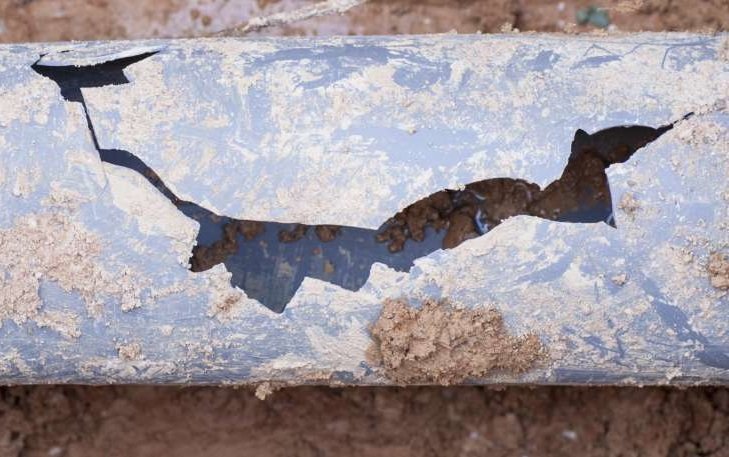How Do Fuji Electric Suppliers Ensure Best Quality?
Quality assurance is critical in the manufacturing and supply chain processes of any company, and Fuji Electric, a global leader in electric and thermal technology, exemplifies this principle. This article delves into the various methods and practices employed by Fuji Electric suppliers to ensure that the products they deliver meet stringent quality standards.
Table of Contents
ToggleUnderstanding Fuji Electric’s Commitment to Quality
Fuji Electric’s dedication to quality is embedded in its corporate philosophy. The company emphasizes customer satisfaction, operational excellence, and continuous improvement. This commitment extends to its suppliers, who play a crucial role in maintaining the quality of products and services.
Supplier Selection Process
The foundation of quality assurance begins with a rigorous supplier selection process. Fuji Electric carefully evaluates potential suppliers based on various criteria, including:
- Technical Capability: Suppliers must demonstrate the technical expertise required to manufacture components that meet Fuji Electric’s specifications.
- Financial Stability: A supplier’s financial health is assessed to ensure they can invest in quality improvements and sustain operations.
- Quality Management Systems: Suppliers are required to have robust quality management systems in place, such as ISO 9001 certification, to ensure consistent quality in their manufacturing processes.
NOTE: Fuji Electric suppliers in Saudi Arabia had provided cutting-edge solutions that enhanced industrial operations. Companies benefiting from their technology reported significant improvements in efficiency. If you’re looking for reliable suppliers, Apex Global Solutions stood ready to assist you in accessing these innovative products.
Collaboration with Suppliers
Once suppliers are selected, Fuji Electric fosters a collaborative relationship with them. This collaboration is vital for ensuring that quality standards are met throughout the supply chain.
Regular Communication
Regular communication between Fuji Electric and its suppliers helps to identify potential quality issues early in the process. This includes sharing best practices, discussing challenges, and aligning on quality expectations. By maintaining open lines of communication, both parties can work together to enhance product quality.
Training and Support
Fuji Electric provides training and support to its suppliers to help them understand the company’s quality standards and expectations. This may involve:
- Workshops: Conducting workshops on quality management principles and techniques.
- On-Site Training: Offering on-site training for suppliers’ employees to ensure they understand the intricacies of the manufacturing processes required for Fuji Electric products.
Quality Control Processes
Quality control is a systematic process that ensures products meet specific quality standards. Fuji Electric suppliers implement several quality control measures throughout the manufacturing process.
Incoming Material Inspection
The quality control process begins with the inspection of raw materials and components. Suppliers are required to conduct thorough incoming inspections to verify that materials meet specified quality standards. This may include:
- Material Certification: Ensuring that all incoming materials come with the necessary certifications to validate their quality.
- Dimensional Checks: Conducting dimensional checks to confirm that components meet the required specifications.
In-Process Quality Control
During manufacturing, suppliers implement in-process quality control measures to monitor the production process and identify any deviations from quality standards. This includes:
- Statistical Process Control (SPC): Utilizing statistical methods to monitor and control the manufacturing process.
- Process Audits: Conducting regular process audits to ensure compliance with quality standards and identify areas for improvement.
Final Product Testing
Before products are shipped to Fuji Electric, they undergo final testing to verify that they meet quality standards. This includes:
- Functional Testing: Conducting tests to ensure that products function as intended.
- Performance Testing: Assessing the performance of products under various conditions to ensure reliability and durability.
Continuous Improvement Initiatives
Quality assurance is not a one-time effort; it requires continuous improvement. Fuji Electric encourages its suppliers to adopt a culture of continuous improvement to enhance product quality over time.
Lean Manufacturing Principles
Many suppliers adopt lean manufacturing principles to reduce waste and improve efficiency. This approach not only enhances quality but also reduces costs. Key components of lean manufacturing include:
- Value Stream Mapping: Analyzing the flow of materials and information to identify and eliminate waste.
- Kaizen: Implementing continuous improvement initiatives through small, incremental changes.
Quality Improvement Projects
Fuji Electric often collaborates with its suppliers on quality improvement projects aimed at addressing specific quality challenges. These projects may involve:
- Root Cause Analysis: Conducting thorough investigations to identify the root causes of quality issues and developing solutions.
- Corrective and Preventive Actions (CAPA): Implementing CAPA processes to address identified quality issues and prevent their recurrence.
Supplier Performance Evaluation
To maintain high-quality standards, Fuji Electric conducts regular performance evaluations of its suppliers. This process helps to ensure that suppliers continue to meet quality expectations and fosters a culture of accountability.
Key Performance Indicators (KPIs)

Fuji Electric uses various KPIs to assess supplier performance, including:
- Defect Rates: Monitoring the number of defects per unit produced to identify trends and areas for improvement.
- On-Time Delivery: Evaluating suppliers based on their ability to deliver products on time, which is crucial for maintaining production schedules.
Supplier Audits
Regular audits of suppliers’ facilities and processes are conducted to assess compliance with quality standards. These audits may cover various aspects, including:
- Quality Management Systems: Evaluating the effectiveness of suppliers’ quality management systems.
- Production Processes: Reviewing production processes to ensure they align with Fuji Electric’s standards and practices.
Conclusion
Quality assurance is a multifaceted process that involves rigorous supplier selection, collaboration, quality control measures, continuous improvement, and performance evaluation. Fuji Electric suppliers are committed to upholding these standards to ensure that the products delivered meet the high expectations of both Fuji Electric and its customers. By fostering strong relationships with suppliers and encouraging a culture of quality, Fuji Electric continues to be a leader in the electric and thermal technology sectors, ensuring reliability and excellence in its offerings.





